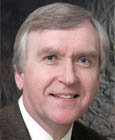Asking someone today if they believe in God brings a greater possibility they’ll answer in the negative than years past. However, a Pew Research study indicates that answer might not tell the whole story.
In Georgia and throughout the Bible Belt, a reference to God typically points to the God of the Bible. The growth of groups such as the Nones and other unchurched in recent years, though, have changed the picture. And while 80 percent of those in a recent poll say they believe in God, 23 percent of that number referred to some other higher power or spiritual force.
Even among the religiously unaffiliated, belief in a deity is common. This includes those self-identifying as atheist, agnostic, and “nothing in particular.” For example, 72 percent of Nones – those not choosing any belief system – believe in a higher power.
Pine Mountain Baptist Association director Paul Baxter doesn’t find that odd.
“The overwhelming evidence within people’s hearts and minds is that there is a creator,” says Baxter. “We didn’t just happen by chance. That’s why most people would choose not to identify themselves as atheists.”
Baxter, formerly longtime pastor at First Baptist Church on the Square in LaGrange, contributes regularly to Since You Asked, The Index’s apologetics column.
“No one wants to cross the Rubicon, so to speak, and declare themselves to have no faith or contact with God just in case there is a God,” he adds. “Many are turned off about. This is often because of inaccurate or distorted ideas that cause them to keep the idea of God vague.”
 Paul Baxter
Paul BaxterThe perception of God also changed depending on one’s basis for that perception. For instance, a series of questions to all respondents asked if God loves all people, knows everything, and determines what happens in our lives. Those who believe in a biblical God answered the questions at much higher rates than those subscribing to a “higher power.”
That perception mirrors Baxter’s experience, as one who has regularly engaged atheists in debate.
“I’ve discovered that almost all atheists have one or both of two Ps, pain and pride. Pain appears as a large chip on their shoulder – or in their heart – toward God. In their mind He didn’t resolve or prevent a painful experience. You see that in cases such as the famed existentialist Albert Camus.”
In the survey, the greatest differential of opinion involved God’s direct involvement in our lives. Asked if God has the power to direct or change everything, 86 percent of those believing in a biblical God answered “yes.” Only 39 percent who see God as a deity thought so. Nearly as pronounced, a 45 percent differential separated the opinions on whether God determines what happens in our lives all or most of the time.
That mindset doesn’t surprise Baxter. In his debates he’s witness a lot of the other P, Pride.
“It takes a lot of arrogance to say you know there is no God,” he says. “Some atheists such as Richard Dawkins are aggressive about it. In debates you can tell they’ve made up their minds and now they just want to score points.”
That’s why even though many of the survey respondents may not agree on a biblical concept of a God, Baxter expresses hope for their future.
“Agnostics are different from atheists, and that’s why I find the survey encouraging. They don’t have a problem with the concept of God. Their problem comes with an organized religious understanding of God. In today’s news a lot of people blackball evangelicals. This predisposes agnostics to reject our understanding of God.”
The associational missionary states tangible expressions of the Gospel are important to get past those walls.
“Efforts such as Disaster Relief need to be publicized more. Those can help in evangelizing groups like the Nones. They’re much more open to that.
“If you can demonstrate God’s love for people, then you’ve gotten their attention.”